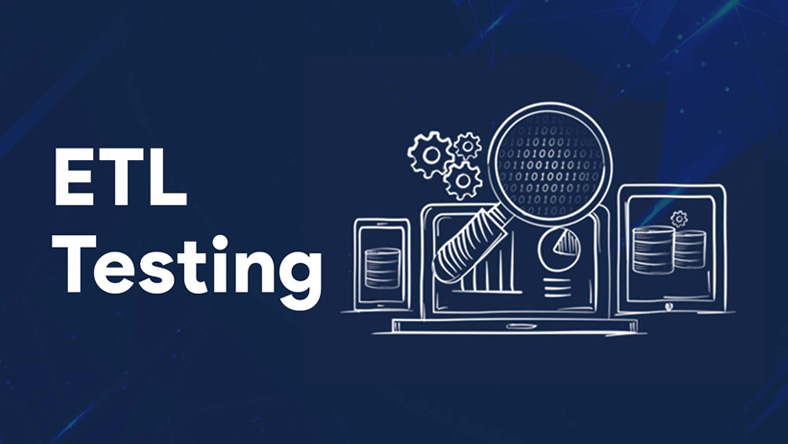ETL Testing

Contact Form
Overview
Students Prerequisites
Course Curriculum
Duration of the Course
Instructor Profile
Overview
Extract, transform, load (ETL) is the general procedure of copying data from one or more sources into a destination system which represents the data differently from the source(s) or in a different context than the source(s). The ETL process became a popular concept in the 1970s and is often used in data warehousing. ETL can transform dissimilar data sets into an unified structure.
Students Prerequisites
Basic knowledge of:
- SQL
- ETL fundamentals
- Data Warehouse concepts
- Query language
Course Curriculum
Module 1: Introduction to ETL and Data Warehousing
- What is ETL Testing?
- Importance of ETL Testing.
- Roles and responsibilities of ETL testers.
- Data Warehousing Basics
- What is a Data Warehouse (DWH)?
- OLTP vs. OLAP systems.
- ETL Process Overview (Extract, Transform, Load).
- ETL Testing Workflow
- Understanding requirements.
- Preparing test plans and strategies.
- Common ETL testing challenges.
Module 2: Data Warehouse Architecture
- Key Components
- Staging area, data warehouse, and data marts.
- Metadata repository.
- ETL tools (Informatica, Talend, SSIS).
- Schema Design
- Star Schema.
- Snowflake Schema.
- Types of Data Models
- Conceptual, logical, and physical models.
Module 3: Types of ETL Testing
- Data Validation Testing
- Data completeness and accuracy.
- Validating source and target data.
- Data Transformation Testing
- Business rules validation.
- Ensuring data transformation accuracy.
- Data Quality Testing
- Checking for duplicates, nulls, and data truncation.
- Ensuring data consistency and referential integrity.
- Performance and Scalability Testing
- Load testing on large datasets.
- Monitoring ETL performance and optimization.
- Regression Testing
- Testing the impact of changes on existing workflows.
- Incremental Data Load Testing
- Validating delta loads.
- Ensuring data synchronization.
Module 4: ETL Testing Process
- Understanding Requirements
- Gathering functional and non-functional requirements.
- Mapping documents and business rules.
- Creating Test Cases
- Writing source-to-target mapping test cases.
- Test case prioritization.
- Test Data Preparation
- Generating sample datasets.
- Using SQL for test data verification.
- Test Execution
- Validating data at each ETL stage (Extract, Transform, Load).
- Using automated and manual testing approaches.
Module 5: SQL for ETL Testing
- SQL Basics
- DML operations: SELECT, INSERT, UPDATE, DELETE.
- Aggregate functions and joins.
- Writing complex queries.
- Advanced SQL
- Subqueries and nested queries.
- Window functions.
- Temporary tables and CTEs (Common Table Expressions).
- Data Validation
- Querying source and target systems.
- Using SQL to compare datasets.
Module 6: ETL Tools Overview
- Popular ETL Tools
- Informatica PowerCenter.
- Talend Open Studio.
- Microsoft SQL Server Integration Services (SSIS).
- Apache NiFi.
- Hands-on
- Installing and configuring ETL tools.
- Building simple ETL workflows.
Module 7: Automation in ETL Testing
- ETL Test Automation Tools
- QuerySurge.
- Informatica Data Validation.
- Talend Testing.
- Selenium (for integration with UI testing).
- Creating Test Scripts
- Writing reusable test scripts.
- Scheduling and monitoring automated tests.
- Integrating with CI/CD
- Continuous testing in data pipelines.
- Using Jenkins or GitLab for ETL testing workflows.
Module 8: Data Integration and Big Data Testing
- Big Data ETL Testing
- Validating data in Hadoop/Hive/Spark environments.
- Testing large datasets for scalability.
- Data Integration Testing
- Verifying integration between multiple data sources.
- Testing APIs and data streams.
Module 9: Error Handling and Debugging
- ETL Error Types
- Common ETL errors (syntax, data mismatch, performance issues).
- Identifying and debugging issues in ETL pipelines.
- Logs and Reports
- Monitoring ETL logs for error tracking.
- Generating detailed test reports.
Module 10: Performance Optimization
- ETL Process Optimization
- Identifying bottlenecks in ETL workflows.
- Implementing parallelism and partitioning.
- Database Optimization
- Indexing, partitioning, and query tuning.
- Using database performance tools.
Module 11: Reporting and Documentation
- Test Summary Report
- Capturing test results and defects.
- Metrics for data validation and quality.
- Test Artifacts
- Documenting test plans, cases, and scripts.
- Maintaining source-to-target mapping documents.
Duration of the Course
30 Days (also available fast track course with short term
- Flexible Schedules
- Live Online Training
Instructor Profile
- Training by highly experienced and certified professionals
- No slideshow (PPT) training, fully Hand-on training
- Interactive session with interview QA’s
- Real-time projects scenarios & Certification Help
- 24 X 7 Support
